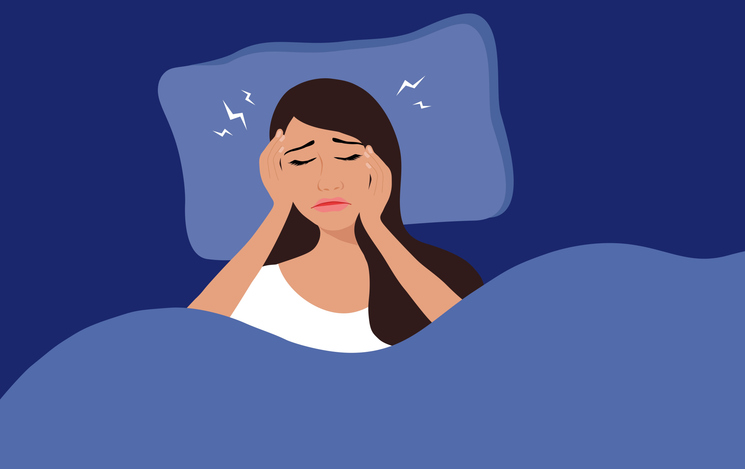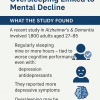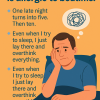Using a Sleep Calculator When You Have Insomnia📱
🌙 Sleep Stages Matter
🚗 Ever wake up feeling like you've been hit by a truck, even after what seemed like a decent night's sleep? You're not alone. For millions of people—especially those with insomnia—morning grogginess isn't just annoying; it's a way of life. But what if I told you that when you wake up might be just as important as how long you sleep?
🧠 The Science of Sleep Stages
🕰 "Think of sleep not as one continuous state, but as a series of 90-minute cycles," explains Dr. Rachel Manber, professor of psychiatry and behavioral sciences at Stanford University. "Each cycle takes you through different stages of sleep, from light sleep to deep sleep and eventually REM sleep where dreaming occurs."
💡 This is where a sleep calculator comes in. These tools help align your wake-up time with the natural completion of these 90-minute cycles:
❌ Wake up during deep sleep? → Hello, sleep inertia—that zombie-like state where your brain is technically awake but definitely not online.
✅ Wake up between cycles? → You're more likely to feel refreshed and alert.
😨 But Wait—I Have Insomnia!
If you're thinking, "This sounds great for normal sleepers, but I'd be happy just to sleep at all," you're raising a valid point. Insomnia adds a complicated layer to the sleep cycle equation.
🛏 "For people with insomnia, it's not as simple as just calculating cycles," says sleep researcher Colleen Carney. "When you have trouble falling or staying asleep, your sleep architecture—the distribution of those sleep stages—is often disrupted."
🤔 But interestingly, this doesn’t mean sleep calculators are useless for insomnia sufferers. In fact, they might offer some unique benefits.
📊 How a Sleep Calculator Can Actually Help With Insomnia
🕰 1. Setting Realistic Expectations
🧑⚕️ "One of the biggest struggles for people with insomnia is the anxiety around not getting enough sleep," notes Michael Chee, director of the Centre for Sleep and Cognition. "Knowing that even shorter sleep durations can be refreshing if they end at the right time can reduce that pressure."
✅ Example: If you know you typically take an hour to fall asleep, plan to get into bed at 10:30 PM, aiming to fall asleep by 11:30 PM, which would complete four cycles by 7:00 AM. This approach accounts for your sleep onset difficulties and reduces frustration.
😴 2. Strategic Napping
📖 Research published in the Sleep Journal by Ong and colleagues found that *"a daytime nap restores hippocampal function and improves declarative learning."*
For insomnia sufferers who may not get consolidated nighttime sleep, strategic napping can be valuable.
📌 A sleep calculator can help time these naps to be either:
✔ 30 minutes 🕧 (before entering deep sleep, preventing grogginess)
✔ 90 minutes 🕘 (a full cycle, helping memory and creativity)
⏳ 3. Breaking the Cycle of Clock-Watching
🕵️♂️ "One of the most counterproductive habits for people with insomnia is clock-watching," says Carney. "It creates anxiety and reinforces negative associations with bedtime."
🚀 Solution: Instead of anxiously staring at the clock, use a sleep calculator to set several potential wake times and remove the clock from view. This reduces bedtime anxiety and helps promote better sleep patterns.
⚠ The Limitations to Keep in Mind
While sleep calculators offer an interesting approach, they’re not a cure-all for insomnia. They don’t address the underlying causes of sleep issues, which may include:
🔹 Psychological factors (stress, anxiety, depression) 😟
🔹 Physical health conditions (pain, hormonal imbalances) 🤕
🔹 Environmental factors (noise, temperature, light exposure) 🌡
🔹 Poor sleep habits (irregular schedules, screen time) 📱
🩺 "The gold standard treatment for chronic insomnia remains *Cognitive Behavioral Therapy for Insomnia (CBT-I),"* emphasizes Carney.
💬 CBT-I addresses the behaviors, thoughts, and habits that perpetuate insomnia.
📌 Making a Sleep Calculator Work for You
If you’re intrigued by using a sleep calculator, here are practical tips for incorporating it into your insomnia management plan:
✔ Use it as a guide, not a rule 🛠 – Your actual sleep needs may vary from the calculator’s suggestions.
✔ Combine it with good sleep hygiene 🛌 – Maintain a consistent schedule, create a relaxing bedtime routine, and keep your bedroom cool, dark, and quiet.
✔ Track your results 📒 – Experiment with different wake-up times and note how you feel each morning.
✔ Don’t obsess over precision ⏳ – The 90-minute cycle is an average; your personal cycles might be slightly shorter or longer.
✔ Consult a professional 👩⚕️ – If insomnia persists, work with a sleep specialist for personalized guidance.
🎯 Bottom Line:
🔹 While a sleep calculator isn’t a magic fix for insomnia, understanding your sleep cycles and working with them—rather than against them—can help you make the most of whatever sleep you do get.
🔹 And when you’re dealing with insomnia, every little bit helps.
💬 What’s your experience with morning grogginess? Have you tried timing your wake-up based on sleep cycles? I’d love to hear if it’s made a difference for you! 👇
😊







